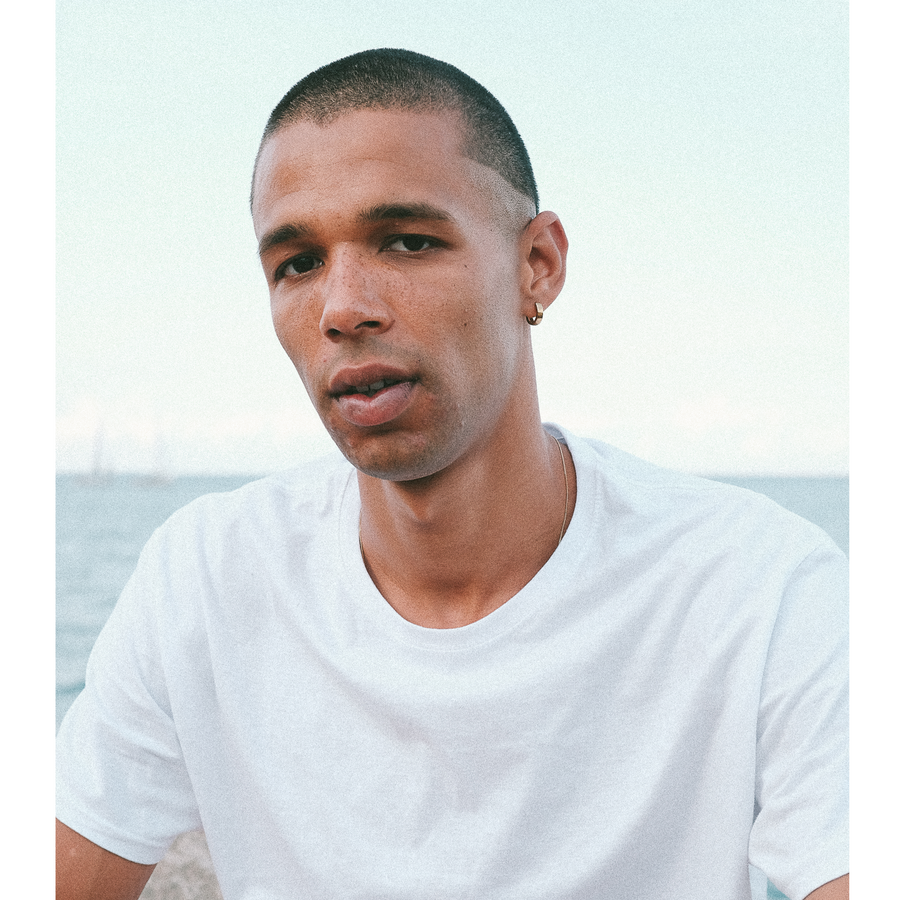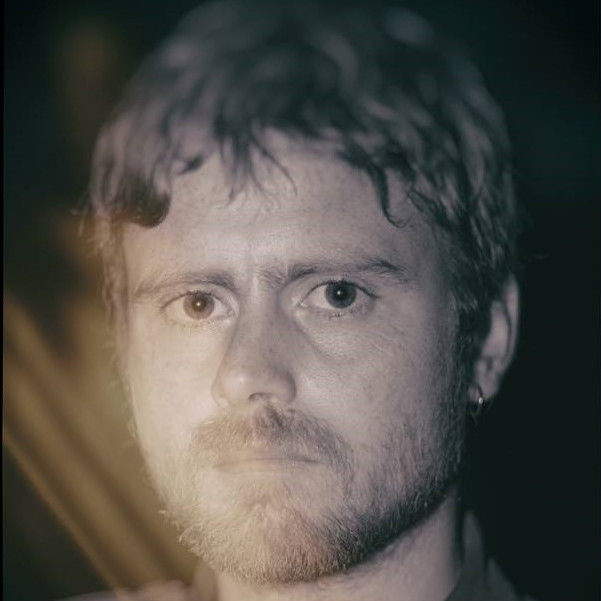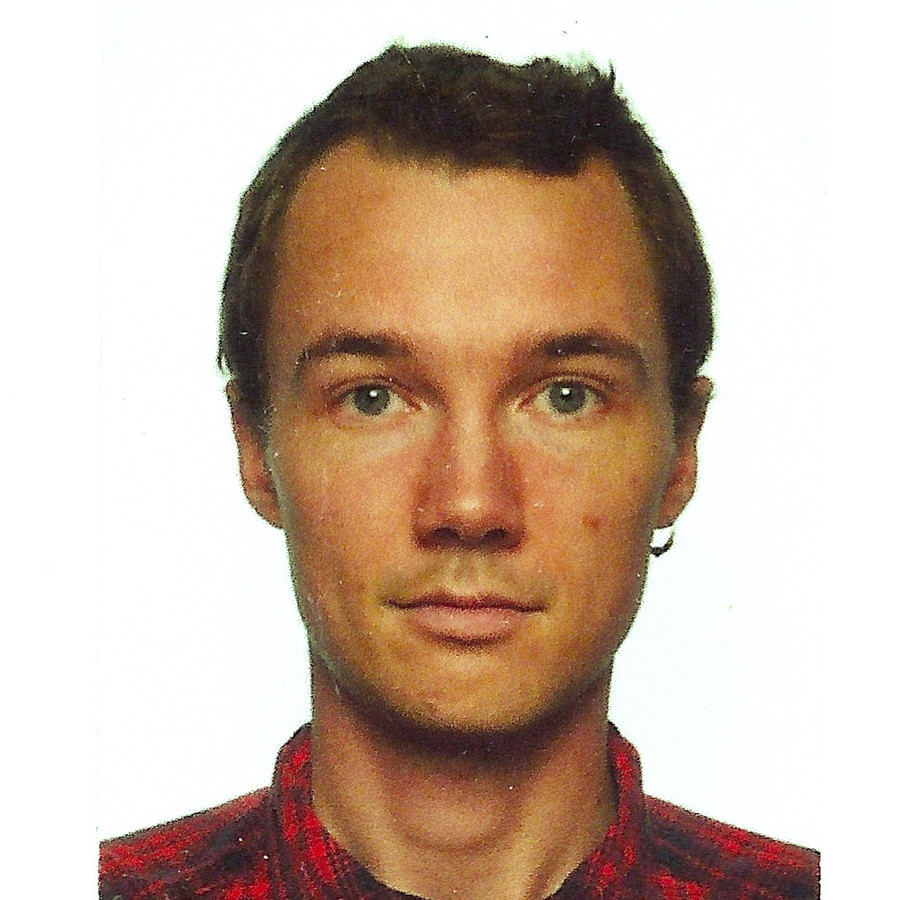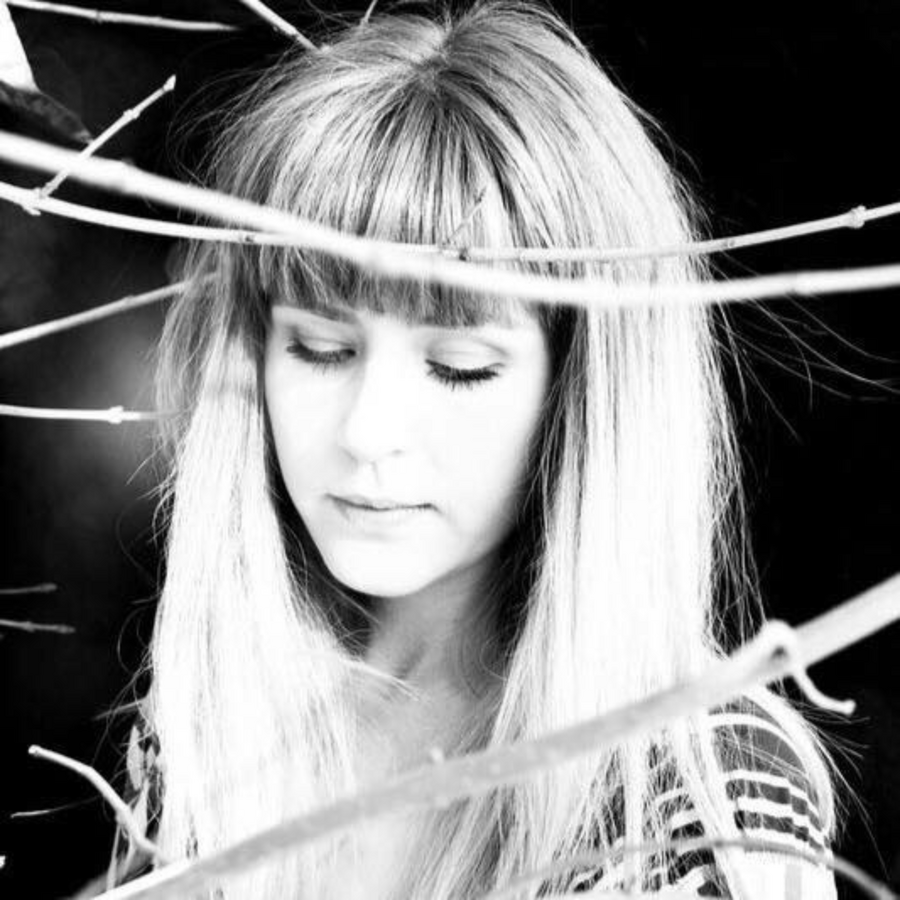Graduates of the Composition programme are typically engaged in writing songs for their own bands/projects, or for other artists, publishers, film or television, etc. Songwriters often work on a freelance basis in a market that is rapidly changing and highly competitive, but where there is also a growing need for content providers who can supply original material of high quality. The employment opportunities depend on both market fluctuations in the business and on the priorities of cultural policy, and may therefore vary a great deal.
Awinbeh Ayagiba, graduated in 2016
What’s your job now?
Currently, I am working on releasing my solo record which I have been working on for the past few years. Besides this, I compose and produce for other artists, most recently Jada, Phlake, Benal, Alina Baraz, Soon, Elias Boussnina, and others.
Why did you choose to study Composition?
I was in a place in my life where I wasn’t entirely sure what I wanted to do. I got a tip about the songwriting programme and I got in against all expectations. I had played in a lot of bands before, but it was in kind of a standstill, so RMC was a nice opportunity to kind of start over and get better overall.
What were your most important discoveries?
That it is never too late to learn something new. I had a lot of ideas about what and what not I was good at when I began at RMC. But after three years of experimenting I have moved over to production, especially vocal production, and this craft, which I didn’t have much knowledge of before RMC, became essential to how I now work with music.
What’s the best thing you got from the programme?
Great friends! And a nice network. We had some very good teachers who introduced us to a lot of new thoughts and things, which was cool, but personally, I got just as much out of reflecting myself in and working with the other students. In the beginning, I was very worried to be exposed as someone who didn’t belong – but speaking with each other in the courtyard you soon realize that everyone is in their own kind of process, which was cool to get different perspectives on.

Nikolaj Paakjær, graduated in 2018
What’s your job now?
I teach young people with mental challenges in primarily songwriting and music production.
Why did you choose to study Composition?
A large part of my time was already spent on songwriting, so it was very liberating to quit my teaching job for a while and focus all my time on it. It was a dream come true that songwriting was all I needed to do for a few years.
I also had the wish to get my work out of my kitchen and get some feedback on the things I was doing and the expression I was developing. It really spoke to me to be able to be a part of such a concentrated, creative, and vibrating environment where you get inspired and challenged.
What were your most important discoveries?
I think that during the three years I sharpened my expression as a songwriter and found that fundamental voice and DNA that is in every piece of music I make. I got better at creating clarity about what each song is supposed to be.
What’s the best thing you got from the programme?
I got to meet a lot of sympathetic and inspiring people in a community where we in honesty could share the different aspects of life as a songwriter – from the overflow of inspiration to the dessert walk that it can also be. People that I continue to do creative work within different contexts.

Anders Hjernø, graduated in 2018
What’s your job now?
I am a songwriter and musician, but I also work part-time as a kindergarten assistant to get a stable income while I work on getting my musical career back on its feet again.
Before I started at RMC a made a living by playing music, but I made a deliberate decision to use my student years to concentrate on writing and composing. Therefore, I scaled back the level of concert and recording activities and instead used the time to explore and experiment. In other words, do all the things I could not afford to do while my income was based on fees.
The time I use on music is divided between the artistic and more commercial activities, like fundraising, booking concerts, and having different kinds of business meetings. Besides that, I am part of running the record and publishing label Aftenrutine.
What were your most important discoveries?
I learned that songwriting and composition cannot entirely be put on a formula. I learned that I thrive on systems and schedules, but I must accept and expose myself to chaos if something interesting is to be made.
I learned to structure my time and work with many tasks at the same time, but I also learned that the most important is to find out what is the most important. There are a lot of things that are important but a few things that are the most important.
Did you know what to use the education for?
Yes, I wanted to be a blazing songwriter and I was looking forward to RMC making me one. I thought I should learn everything; to play the piano, take song lessons, write orchestra arrangements, and also reform the student democracy at the school.
At some point, I realized that there are only 24 hours in a day, and that is when I started thinking about there being many things that are important but a few things that are the most important. And then I started sorting out and scrap dreams. That was an important lesson and a lesson that can be used for the rest of your life.
How do you see the future for songwriters and producers?
I won’t make predictions on behalf of all songwriters and producers. Personally, I think that the future takes whatever form according to the battle you choose. If you want to be a star in the big leagues the future will look in a certain way because it is reserved for the few to be the big league star. If you want to be good at writing the music that is popular, then the future looks in a certain way because there are plenty of takers and many of them are really talented.
Personally, I would like to make a living off my music but I have also decided that I do not want to feel like a failure if that does not happen. That is a pleasant decision to have made because it gives me peace to work on writing some music. My battle is not to have a career because it is not important to me. My battle is to have the peace to create insightful and precise works, and it is nice if that makes a career. If not, I have still created something insightful and precise and that is the most important.

Dísa Jakobsdottir, graduated in 2015
What’s your job now?
I sing in different bands, I am a masseuse, work with a herbalist in a herbal pharmacy and do meditations with vocals, gong, and Tibetan sing scales, and teach singing at the conservatory in Reykjavik.
Why did you choose to study Composition?
I wanted to challenge myself as an artist and singer, figure out what I was capable of within music – as well as outside the framework – and experiment with my voice. I also wanted to meet other people within the same field and learn from them, share inspirations, and get ideas and feedback.
What were your most important discoveries?
I learned to trust my own ideas more, learned that I could make music from scratch, and like the result, and learned to move away from the mainstream. There was something stuck inside of me for a long time and the programme helped me out of it. I also discovered many new places within my voice and ways to play with it, which I am very grateful for. It is my main instrument and core.
What’s the best thing you got from the programme?
I was very happy with having space and room to experiment and to receive feedback on my ideas. I got a great network and good friends met inspiring people and teachers that showed me new perspectives on art, spirituality, and different ways to listen and perceive.
